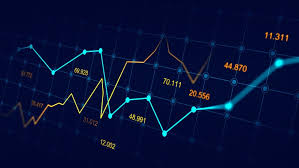
Forex trading has garnered significant attention in recent years, with many individuals seeking to capitalize on the fluctuations of currency pairs. However, this lucrative market raises an important question: is forex trading gambling? To answer this, we must examine the principles of both activities. While forex trading can resemble gambling in some aspects, there are crucial differences that set them apart. In this article, we delve into the nature of forex trading, its risks and rewards, and how it compares to gambling. For those interested in starting their journey, platforms like is forex trading gambling Trading Platform PH offer valuable resources.
Understanding Forex Trading
Forex trading involves the exchange of currencies on a global scale. It operates on a decentralized market where traders buy one currency while selling another. The goal is to profit from the fluctuations in exchange rates between pairs such as USD/EUR or GBP/JPY. Unlike traditional stock trading, forex markets are open 24 hours a day, five days a week, allowing for a high level of flexibility and potential for profit.
The Mechanics of Trading
Traders analyze market trends, economic indicators, and geopolitical events to inform their decisions. They employ various strategies, ranging from technical analysis that focuses on price charts and indicators to fundamental analysis that considers economic news and reports. Successful traders develop a disciplined approach, employing risk management techniques such as stop-loss orders to mitigate potential losses. The ability to calculate and manage risk distinguishes forex trading from pure gambling, where chance often plays a much more significant role.
Comparing Forex Trading and Gambling
At first glance, forex trading and gambling may seem similar as both involve risk and the potential for financial gain. However, the underlying principles differ significantly. Here are some key comparisons:
- Luck vs. Skill: Gambling is largely based on chance, where outcomes depend more on luck than skill. In contrast, successful forex trading relies on a trader’s ability to analyze data, recognize patterns, and execute strategies.
- Timeframe: Gambling often involves quick, one-time wagers with immediate results. Forex trading can involve longer-term positions, allowing traders to react and adjust based on market movements.
- Risk Management: Traders can implement a variety of strategies to manage risk effectively, such as setting stop-loss orders and curating diversified portfolios. Gamblers, on the other hand, typically have less control over risk management.
- Market Knowledge: Forex traders often invest significant time in studying market dynamics and economic indicators. Knowledge and experience can significantly impact trading success, whereas gambling largely relies on chance.

The Psychological Aspect
One of the most significant parallels between forex trading and gambling lies in the psychological impact. Both activities evoke emotions such as fear, greed, and excitement, which can lead to poor decision-making. The thrill of a winning trade might encourage riskier behavior, while losses can lead to revenge trading, where traders attempt to recover lost funds by making impulsive decisions. Hence, developing a strong psychological discipline is crucial for both traders and gamblers.
Emotional control, coupled with a well-defined trading plan, is essential for navigating the ups and downs of the forex market. Traders often utilize journaling techniques to reflect on their decisions, which helps in managing emotions and learning from past mistakes.
Risk Management Strategies in Forex
Unlike gambling, where outcomes are uncertain and depend on luck, forex trading allows for structured risk management strategies. Successful traders often employ the following techniques:
- Diversification: Traders can reduce risk by investing across various currency pairs instead of putting all their capital into a single trade.
- Position Sizing: Adjusting the amount of capital allocated to each trade based on risk tolerance helps manage potential losses.
- Utilizing Stop-Loss Orders: This tool allows traders to set predefined exit points to limit losses if the market moves against them.
- Regularly Reviewing and Adjusting Strategies: Constant assessment of trading strategies based on performance and market conditions can enhance traders’ adaptability.
Conclusion: Is Forex Trading Gambling?
In essence, while there are similarities between forex trading and gambling, the differences are significant enough to categorize them as distinct activities. Forex trading incorporates strategic analysis, risk management, and a focus on skill development, while gambling typically relies on luck.
As a trader, it is imperative to approach the market with the same discipline and knowledge that would be essential for success in any career. By understanding the dynamics of forex trading, individuals can move beyond the gambling mindset and harness the potential for financial growth through informed decision-making and risk management.
Whether you’re just starting or looking to refine your strategies, platforms like Trading Platform PH can provide the tools and resources necessary to enhance your trading journey. As you embark on this path, remember that success in forex trading requires education, patience, and discipline.
